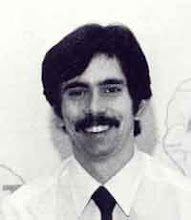True knowledge is knowing what you know and knowing what you don't know ...
In the context of the above two somewhat famous quotations, I would say that Wikipedia offers more positives than negatives WHEN you accept it for WHAT IT IS!
And, what is it? It is an encyclopedia. Back in the late 50's when I was in elementary school, every class had a set of encyclopedias. It was where little tykes, like myself (yes, I was actually "little" once), could go to learn something about something we didn't know. We could not go to the library every time we had a question. As such, the classroom encyclopedias were accessible, convenient, and a BEGINNING! People of my age can certainly remember using information from the encyclopedia and trying to change things so that you weren't copying. That was not easy because encyclopedia language is already "freeze dried." In summary here, theses encyclopedias were the "first step" or a beginning, just like Wikpedia is a first step or a beginning. Wikipedia is accessible, convenient, and YES - a BEGINNING!
One undeniable advantage any online encyclopedia has over the old-school encyclopedia (in addition to cost) is that as information changes (and let's be honest here -- it frequently does) the information on Wikipedia can easily be changed - at no cost.
One of the most common complaints leveled at Wikipedia is that it is unreliable because it can be changed by ANYONE! While there is some truth to this, anyone who has followed Wikipedia since it's inception knows that they have found ways to improve reliability. While it is not 100% reliable (what sources are), they do have some safeguards in place. First, you have to create an account. Second, your IP address is noted and recorded. This means, that if you are an unreliable contributor your account will be shut down and/or your IP address will be blocked. Hence, you are no longer a contributor. Also, the WikiNews article pointed out the hierarchy Wikipedia uses to monitor contributors: Administrators, Bureaucrats, and Stewards.
In the one article that compares Wikipedia to a city, I especially liked this paragraph:
"It is this sidewalk-like transparency and collective responsibility that makes Wikipedia as accurate as it is. The greater the foot traffic, the safer the neighborhood. Thus, oddly enough, the more popular, even controversial, an article is, the more likely it is to be accurate and free of vandalism. It is the obscure articles — the dead-end streets and industrial districts, if you will — where more mayhem can be committed. It takes longer for errors or even malice to be noticed and rooted out. (Fewer readers will be exposed to those errors, too.)"
In closing, there is a lot more that I don't know than I do know. As such, I am a frequent user of Wikipedia. I usually start there, and while it helps me improve my KNOWledge, I am always cognizant it is still the same as those dusty old encyclopedia's in Mrs. Underhill's classroom (my first grade teacher).
